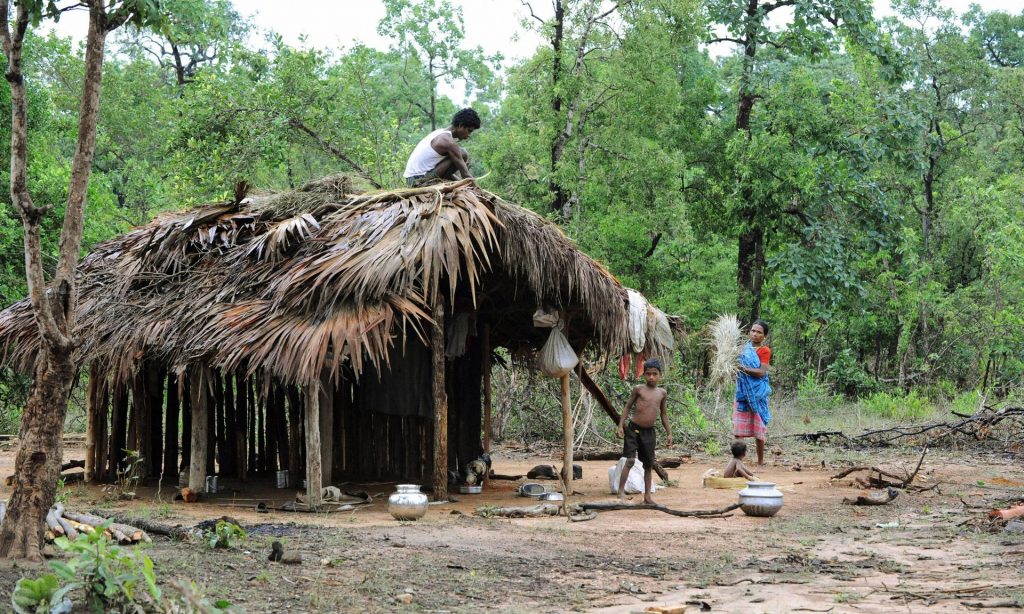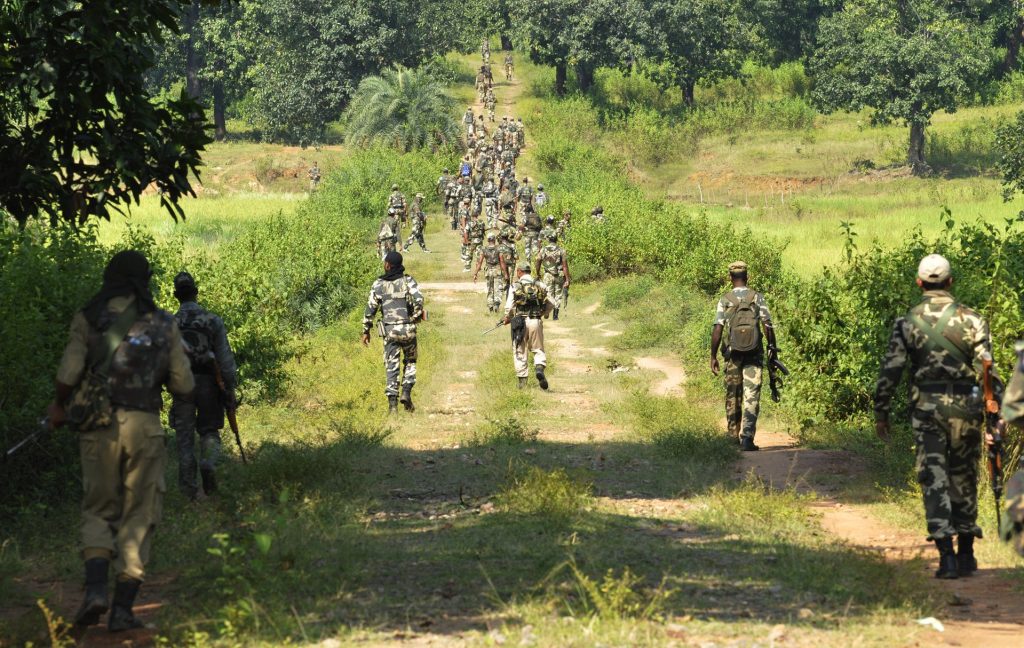
Photograph: Noah Seelam/AFP/Getty Images
It has been three years since Madvi Deva, 30, saw his two young children and his elderly parents. “I miss them very much. But if I go back to my village in Chhattisgarh [state in central India], I will die,” he says.
Deva and his wife, Sumi, are now living in Terapad village in Khammam district, Telangana state, after fleeing from their home when paramilitary forces raided their village in search of Maoist insurgents.
“They accused us of helping the Maoists and beat us … We left because such late-night attacks have become a regular feature there,” Deva says. “Poor, defenceless tribals [indigenous people] like me have become pawns in the battle between the Maoists and the government.”
India’s Maoist insurgency, which former prime minister Manmohan Singh called “the single biggest internal security challenge ever faced by India”, began in the eastern state of West Bengal in the 1960s. Since then, it has spread to eight other states, exploiting a deficit of governance, and causing the displacement of hundreds of thousands of people. Today, Chhattisgarh state is the movement’s strongest base.
But there is no federal policy or legal framework to deal with internally displaced people (IDPs). In fact, India doesn’t know how many IDPs are in the country. The Norwegian Refugee Council puts the figure for 2015 at more than 560,000, while the Internal Displacement Monitoring Centre’s global overview said at least 853,900 people were displaced by violence in India.
India has signed neither the 1951 UN refugee convention nor its 1967 protocol and does not permit the UN high commissioner for refugees – which works with IDPs – access to camps.
Without a law, IDPs end up being nowhere people with no state wanting to accommodate them “because they eat into development funds meant for local residents”, as one government official put it. This leaves them vulnerable to exploitation.
Raghu P, who works on land and livelihood issues at ActionAid India, says it is lack of commitment rather than funds. “There is no political will. When it becomes an issue between two states on IDPs, the centre must intervene.”
But writing in Forced Migration Review, Mahendra P Lama, associate professor at the school of international studies at Jawaharlal Nehru University in Delhi, outlined three reasons why India doesn’t want to acknowledge IDPs and frame a law. Regular monitoring is not possible in a vast country that lacks an authority responsible for coordinating data from the centre and states; the nature, frequency and extent of causes of internal displacement in India are so varied that it would be a herculean task to record them; and political sensitivities at state level prevent the release of information on the exact nature and extent of displacement.
“I cannot access government programmes like [the] rural employment guarantee scheme because I don’t have any government identity documents,” says Deva. “So I work in brick kilns or the construction sector and get half of what locals are paid. And, if an accident happens, they will just abandon me.”
Women face threats of violence and trafficking. Inadequate access to water, food, sanitation and healthcare mean their children are at greater risk of malnutrition and illness.
“Without an official framework, it’s difficult for us to convince officials to include the IDPs in government programmes,” says V Gandhi Babu, from the Agricultural and Social Development Society, a Hyderabad-based organisation.

Photograph: Samir Jana/Hindustan Times/Getty Images
Suhas Chakma, director of the Asian Centre for Human Rights, says India is not the only country without a policy for IDPs. “But even the latest draft policy for rehabilitation of persons displaced due to land acquisition disregards the plight and interests of IDPs of other categories,” he adds.
Alexandra Bilak, head of policy and research at the Internal Displacement Monitoring Centre in Geneva, says India needs a law to provide adequate and timely assistance to affected people, and it needs to establish consistent definitions of IDPs, refugees and migrants, so that they are not used interchangeably. The country should also implement the UN guiding principles on internal displacement, which are consistent with international human rights and humanitarian laws that India has ratified, and local laws.
Unfortunately, the political class hasn’t even started talking about this, let alone framing a law. “This ad hoc [approach] on IDPs must end,” says Chakma.

